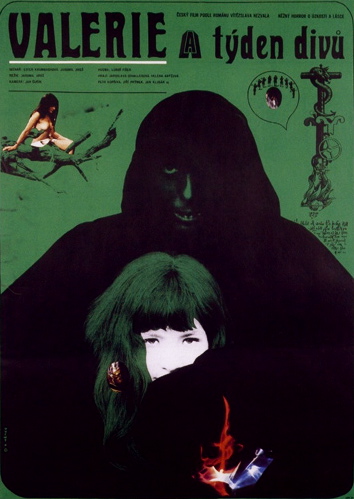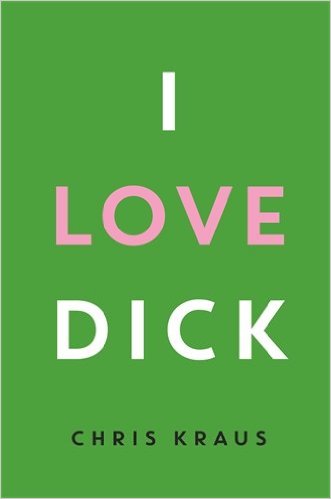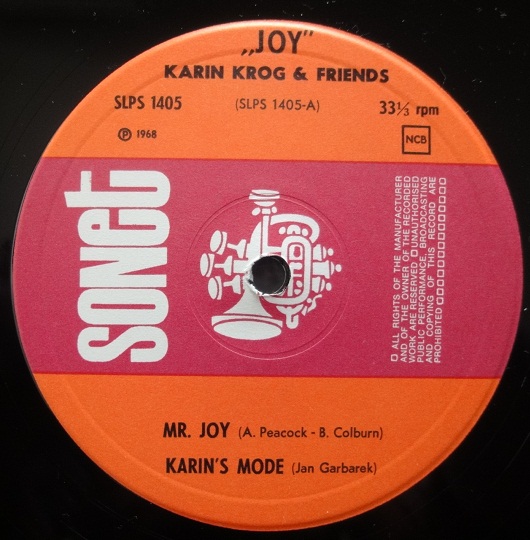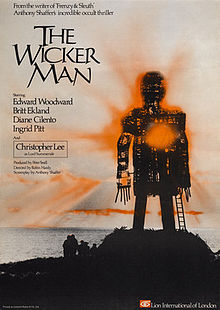
(Photo: Courtesy of Jenny Hval)
Complex takes on women’s bodies are just one way that Jenny Hval’s music runs against the grain. Over six albums, the Norwegian musician sings about female desire and bodily functions, from puppy love to waking up with menstrual blood on the bed—that’s daring in an industry where Billboard top 20 singles still sexually objectify women more often than men. Hval’s 2006 debut album, To Sing You Apple Trees, released under the stage name Rockettothesky, gives voice to a young lover’s idiosyncratic sexual fantasies, while her 2008 follow-up Medea narrates a woman’s internal battle over whether to kill her children to punish a straying husband. Subsequent albums Viscera (2011), Innocence Is Kinky (2013), and Apocalypse, Girl (2015) have described women masturbating, watching porn, and entertaining domestic fantasies, and, in Hval’s latest, 2016’s Blood Bitch, she devotes several songs to vampires and menstruation. When asked whether she considers her music feminist, Hval has said that she isn’t trying to provide a roadmap to a more utopian world—but that she “dreams of it.” Critics still raise eyebrows when women sing candidly about their bodies, and reviewers still call Hval’s work “explicit”—but, 11 years after her first album, she has staked out a fearless, unique position as an artist who refuses to defer to male squeamishness.

Film

Valerie and Her Week of Wonders
American fairy-tale films are often G- or PG-rated affairs, starring A-list actors and featuring expensive CGI and animation to draw in multiple demographics. But Czech filmmaker Jaromil Jires’ 1970 take on the genre is decidedly for mature audiences only: Valerie and Her Week of Wonders features a newly pubescent protagonist dodging a potential rapist and a blood-sucking grandmother as she seeks to reclaim a pair of stolen earrings. The film has become a cult classic in the nearly 50 years since its release—critics have suggested that the film inspired an Angela Carter short story and film script, and the film also inspired Philadelphia psychedelic folk band The Valerie Project’s 2007 self-titled album—and Hval says she watched the movie to get ideas for Blood Bitch.
Why
“In one scene early on, Valerie, the main character, walks through a field, and you see drops of blood dripping on the flowers. And from that moment this kind of crazy, horrific, but also kaleidoscopic, beautiful, and expansive universe unfolds. I found it to be incredibly beautiful, representing the awakening of desire in its full scope in a young woman. It’s a very great film.”
Album
Calling Out of Context
The experimental musician Arthur Russell wore many hats during his career—he was a cellist who studied Indian classical composition, produced dance and disco singles, and nearly became the fourth member of the Talking Heads. But when Audika Records released a compilation of unreleased songs from his archive in 2004, 12 years after his death, critics marveled that Russell had once more managed to surprise them. “Calling Out of Context’s twelve tracks are unlike anything I’ve ever heard from the man,” Pitchfork’s Andy Beta wrote upon its release. Hval says that Russell’s album inspired the “beat and the movement” of the songs in Blood Bitch.
Why
“His voice is really light, and it floats on top of very ’80s drum-machine beats. That particular way of singing that Arthur Russell’s got is something that I connect with blood. It’s an abstract influence, but I also connected more beats-based music, compared to what I had done before, with the blood theme. So it was very important for me to work with more clubby song structures and beats and more continuous tempos.”
Novel

I Love Dick
When Chris Kraus’ semi-autobiographical debut I Love Dick was initially released in 1997, Kraus says that prominent critics disparaged it for its confessional style. Today, post-Girls and XOJane, its story—a woman and her husband become obsessed with a cultural critic named Dick and write him love letters until the woman leaves her husband to actually nab him for real—is a cult classic. Lorde has Instagrammed her copy, and it’s been turned into an Amazon series by Transparent creator Jill Soloway.
Why
“It’s probably the most important book I’ve read for the world right now. It takes emotions seriously and places them in a context where academic ideas and emotional ideas can come closer to each other than I’ve ever seen in any kind of writing. And it makes me really happy and it gives me hope for the world.”
Play
Madea
It’s amusing to remember that when Euripides’ Medea debuted at an Athenian tragedy competition in 431 B.C.E., it came in last place. Today, the play—in which a mother kills her children to get revenge on a husband who leaves her—is a staple of high school English syllabi, and its title character is universally associated with tragedy and with a kind of female monstrosity. Explaining the play’s modern appeal, Laura Swift, a lecturer in classical studies at The Open University, wrote in 2014, “It’s Medea’s ability to uncover our worst fears, combined with its psychological plausibility, that makes it as terrifying today as it was almost 2,500 years ago.”
Why
“You need to get lost in ancient languages and ancient voices, and this is an amazing tale of guilt and revenge. It’s the sort of literature that stays with you and walks you through life in a way—because it’s so mythical and the language is beautiful in whichever translation.”
Album

Joy
With her third solo album, released in 1968, Norwegian jazz singer Karin Krog surprised critics by leaving behind her straightforward swing and bop style for an experimental, bluesy approach. Krog has explained that, in the ’60s, when the Beatles came on the scene, jazz left the realm of pop, and she began wanting to try a new sound. In Joy, released after an American tour that earned her an international audience, Krog scats and improvises, cementing her reputation as a regional jazz pioneer. Four years earlier, she had become Norway’s first jazz artist to record and release a full album; with Joy, she incorporated electronic effects.
Why
“I didn’t hear this album until four or five years ago, but it’s amazing; the freedom she’s got in her vision on that album is incredible. She’s a really important character in Norwegian jazz. I can’t speak for anyone else, but she revolutionized everything with her work about what an artist is and how you can use your voice.”
Poetry
Kingsize
On the first song of her 2015 album Apocalypse, Girl, Hval quotes a line from Danish poet Mette Moestrup’s 2014 collection Kingsize: “Think big, girl, like a king, think kingsize.” Acclaimed in Norway but rarely translated into English, Moestrup is known for writing dynamic verses about love and the experience of motherhood that use new media and poetry to show how language creates our notions of race and gender. Throughout Kingsize, Moestrup uses a colloquial tone and quirky everyday objects—a banana, a used condom—to address Danish debates over refugees and sexism.
Why
“It’s very free-spoken, very dynamic language. [Moestrup] goes from some very mundane situation, and then dips down into something very heavy. So it’s a great, dynamic read—it’s like you see the surface of the skin and all of a sudden you dive into it. It’s a rush to read.”
Film

The Wicker Man
When British director Robin Hardy’s The Wicker Man was first released in 1973, the mystery-horror musical bombed at the United Kingdom’s box office. Six year later, though, it was hailed as a cult classic after two American companies separately released longer cuts. With a story following a Catholic detective who investigates the disappearance of a girl on a Scottish island known for pagan rituals, the film has since been called “the Citizen Kane of horror movies” by Cinefantastique magazine. Folk songs from the original soundtrack have been covered by Sneaker Pimps, Faith and the Muse, the Mock Turtles, and Hval, whose “Grizzly Man,” on her second album, Medea, is a variation on a Wicker Man folk song.
Why
“The music is also really beautiful and is believably performed. You think this is a crazy little community performing the music, instead of it being by professionals. It’s got a really crazy, really strange, odd sexual energy, this film. In a sense, it’s sort of life-changing. I watch it every few years.”
A version of this story originally appeared in the August/September 2017 issue of Pacific Standard.





